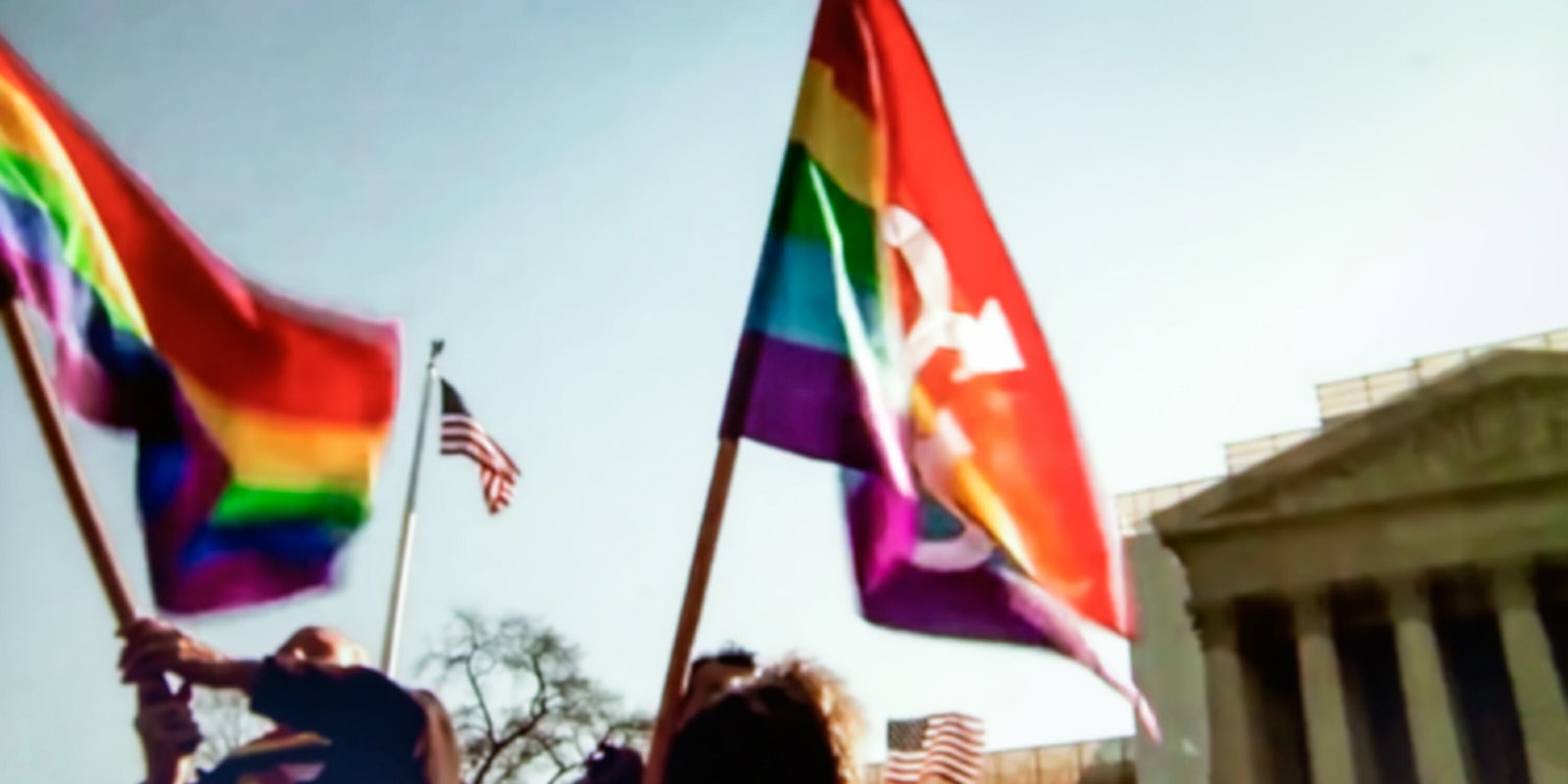In a step forward for trans rights, a federal appeals court ruled on Tuesday that a male transgender student in Wisconsin can use the boys’ bathroom at his high school.
A three-judge panel from the 7th U.S. Circuit Court of Appeals concluded that the Kenosha Unified School District violated 17-year-old Ashton Whitaker’s constitutional rights by forcing him to use the girls’ bathroom or a gender-neutral restroom, shooting down claims that segregating transgender students was necessary to protect students’ privacy.
Instead, the court ruled that a trans student’s presence in their preferred bathroom isn’t any more of a privacy risk “than the presence of an overly curious student of the same biological sex who decides to sneak glances at his or her classmates.”
“For nearly six months, Ash used the boys’ bathroom while at school and school-sponsored events without incident or complaint from another student,” the court ruled. “It was only when a teacher witnessed Ash washing his hands in the restroom that his bathroom usage once more became an issue in the school district’s eyes.”
The court’s ruling also provides a clear defense for transgender students under Title IX. According to the panel, transgender people are protected under “sex stereotyping” antidiscrimination claims, as transgender people themselves challenge traditionally held stereotypes of sex and gender.
“A policy that requires an individual to use a bathroom that does not conform with his or her gender identity punishes that individual for his or her gender non‐conformance, which in turn violates Title IX,” the court ruled in its decision. “The School District’s policy also subjects Ash, as a transgender student, to different rules, sanctions, and treatment than non‐transgender students, in violation of Title IX. Providing a gender‐neutral alternative is not sufficient to relieve the School District from liability, as it is the policy itself which violates the Act.”
The court also made several other arguments that could strengthen future rulings in support of trans bathroom rights. During the decision, the judges ruled that transgender students should not be separated from cisgender students based on their bodily differences, because public facilities do not separate pre- and post-pubescent males and females based on their bodily differences, either.
“Further, if the School District’s concern is that a child will be in the bathroom with another child who does not look anatomically the same, then it would seem that separate bathrooms also would be appropriate for pre‐pubescent and post‐pubescent children who do not look alike anatomically,” the court ruled. “But the School District has not drawn this line.”
Trans activists are ecstatic that the court criticized birth certificates’ authority on sex and gender. Notoriously difficult to update in many states, the court argues that sex markers on birth certificates may be impractical due to the complexities behind human genetics and bodies.
“The marker does not take into account an individual’s chromosomal makeup, which is also a key component of one’s biological sex,” the court said. “It is clear that the marker on the birth certificate would not adequately account for or reflect one’s biological sex, which would have to be determined by considering more than what was listed on the paper.”
This isn’t the first time that sex discrimination claims have been used to protect transgender Americans’ civil rights. Four other appeals court rulings have defended transgender plaintiffs based on sex stereotyping concerns, including a landmark housing case that protects LGBTQ citizens against housing discrimination. The rulings may introduce a new precedent for protecting trans people on the basis of sex discrimination.
“I hope my case will help other transgender students in Kenosha and elsewhere to just be treated the same as everyone else without facing discrimination and harassment from school administrators,” Whitaker told NBC News.
MORE STORIES FROM THE DAILY DOT


